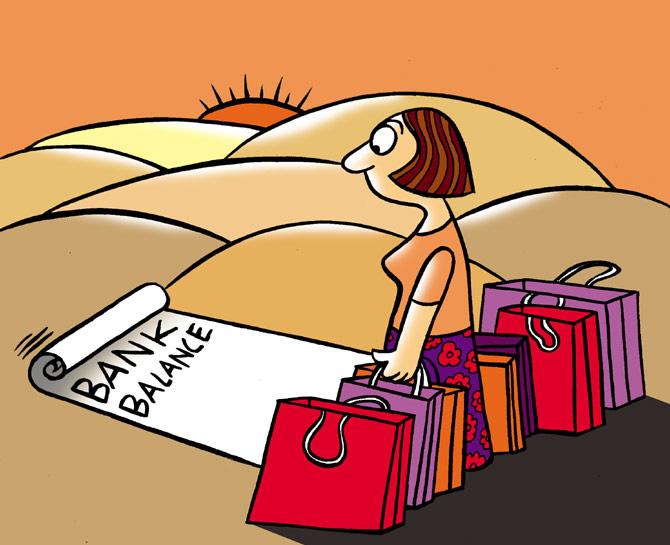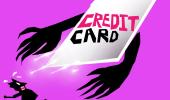'Lack of self-control over spending leads to a credit card debt trap.'
'People think they have money and spend using a credit card, but when it's time to pay, they realise they don't have the money.'

Credit cards have become the quickest means to access credit, especially for the younger generation.
According to the Reserve Bank of India data, the total number of credit cards in circulation increased by 18 per cent to 103.3 million in May 2024 from 87.4 million a year ago.
Credit card spending in May 2024 increased by 17 per cent year-on-year (Y-o-Y) to Rs 1.65 trillion.
However, reckless use of credit cards can lead to debt troubles.
"Credit cards demand responsible usage. Due to high interest rates, late payments on credit card bills can snowball, pushing you into a debt trap," says Adhil Shetty, CEO, BankBazaar.
High-cost borrowing
Credit card borrowings come at a high cost.
"Always spend the money you have. If you don't pay back your card dues on time, you could be charged an interest rate that could go up to 40 per cent or above on your due amount," says Sumanta Mandal, TechnoFino founder.
"Credit cards carry the highest rate among all credit products. Always use your credit card as you would a debit card," Mandal adds.
Spend wisely
Control your spending to avoid falling into a debt spiral.
"Lack of self-control over spending leads to a credit card debt trap. People think they have money and spend using a credit card, but when it's time to pay, they realise they don't have the money," says Mandal.
To escape a debt trap, do not increase your existing debt.
"Don't make new purchases using your card until you have paid off your outstanding debt. If you have multiple credit cards, prioritise your debts and pay off the ones attracting the highest interest," says Shetty.
Avoid paying minimum dues
If you tend to make minimum due payments, curb this habit. The interest will continue to accrue on the outstanding balance, adding to your debt.
"Settling the minimum payment each month might feel good, but it could be a costly mistake," says Satish Mehta, founder of Athena CredXpert.
"Most of your payment will probably be used to cover interest charges, and the principal amount will only be partially reduced. You will end up accruing higher interest overall," explains Mehta.
If crisis looms
If you are already facing a payment crisis, stop using your credit cards.
"Stop taking any new debt. The aim is to get out of the debt trap, so accumulating more debt can be highly counterproductive," says Mehta.
While personal loans are also costly, they are significantly cheaper (10.5 to 20.6 per cent) than credit card dues.
"Take a personal loan to clear your card dues. Also, consider borrowing from family and paying dues," says Mandal.
Consider juggling your dues between cards.
"If you are using a high-interest credit card, explore balance transfer options to transfer your dues to a lower-interest card.
"You may also convert your existing outstanding credit card balance into affordable monthly EMIs (equated monthly instalments). However, a processing fee may apply. Alternatively, you can negotiate with your issuer to reduce the fees," says Shetty.
If your card dues are high, take a loan against gold or fixed deposits (which are cheaper than personal loans) to pay off this loan.
Beware of consequences
Failing to pay on time hurts your credit score.
"A default will result in a low credit score," says Mehta.
"You will face difficulties in availing a new loan because the lender will consider you a risky customer."

Disclaimer: This article is meant for information purposes only. This article and information do not constitute a distribution, an endorsement, an investment advice, an offer to buy or sell or the solicitation of an offer to buy or sell any securities/schemes or any other financial products/investment products mentioned in this article to influence the opinion or behaviour of the investors/recipients.
Any use of the information/any investment and investment related decisions of the investors/recipients are at their sole discretion and risk. Any advice herein is made on a general basis and does not take into account the specific investment objectives of the specific person or group of persons. Opinions expressed herein are subject to change without notice.
Feature Presentation: Ashish Narsale/Rediff.com












 © 2025
© 2025